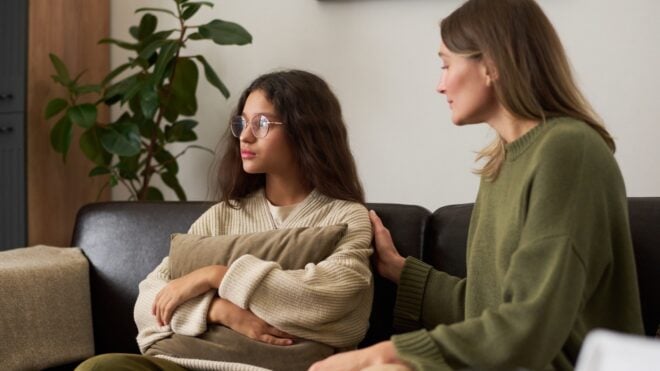
It's not because of a new baby or even the global health situation. You're exhausted, but you can't seem to get a full night's rest. What's going on? Here are six reasons you can’t sleep (and what you can do about it).
You’ve been doom-scrolling

“Each night ends the way the day began, with an endless scroll through social media in a desperate search for clarity,” Angela Watercutter wrote recently in Wired. Social media is already associated with things like anxiety and depression, but with the uncertainty of the health crisis and the political landscape, as well as shootings, riots, wildfires, and hurricanes, there’s even more to agitate you and keep you up at night.
To do: Experts suggest putting the phone down well before bed.
You’re bathed in blue light

In addition to, say, murder hornets and the impending asteroid (timed perfectly for Election Day!), the blue light emanating from your phone is also messing with your circadian rhythms. We need blue light — from the sun — to help our bodies wake up in the morning. But at night? It overstimulates the brain and can keep you from sleeping.
To do: A “digital sunset,” 30 to 60 minutes before bedtime, should help.
Wine

After a looong day of working from home, managing distance learning and trying to keep the house in order, you’ve earned that glass of wine (or two). But is it sabotaging your slumber? Probably. “Alcohol messes with your sleep cycles, resulting in more arousals, and causing you to spend less time in the important deep sleep stages,” Dr. Rajkumar Dasgupta, a spokesperson for the American Academy of Sleep Medicine, told HuffPost.
To do: If wine — or, really, any alcohol — is how you relax or wind down at night, try deep-breathing exercises instead.
You haven’t exercised. Like, at all

Gyms are closed. You don’t like running in a mask. You have simply lost the will to move. The pandemic has exacerbated two preexisting issues: physical inactivity and sedentary behavior. And those two things are associated with poor sleep quality.
To do: Get moving. (Duh). Just 30 minutes of moderate physical exercise, five days a week, can kickstart the hormones associated with a good night’s sleep.
Midlife

Writer Ada Calhoun has a whole book about this, with this dedication: “For the middle-aged women of America. You’re not imagining it, and it’s not just you.” We earn less, are deeper in debt, and are gaining weight</a>; our job prospects are more meager, we’re sandwiched between aging parents and hormonal kids, and we’re the first generation to probably not outearn our parents.
To do: Just … wait. According to the happiness U-curve, it gets better starting around age 50.
Your schedule’s all off

One key to getting good sleep is having a regular sleep routine — specifically, going to sleep and waking up at the same time. And with new work-from-home schedules and late nights doom-scrolling or binge-watching, the days can get kinda gushy.
To do: Set a schedule and stick to it. “Above all, it is important to wake up at the same time every morning (even if you don’t have to), to get up and get dressed, and follow an agenda of activities (planned at least the night before), so you are not drifting through the day or trying to make it up as you go along,” says Ethan Gorenstein, Ph.D., an associate professor of behavioral medicine at Columbia University Irving Medical Center.




